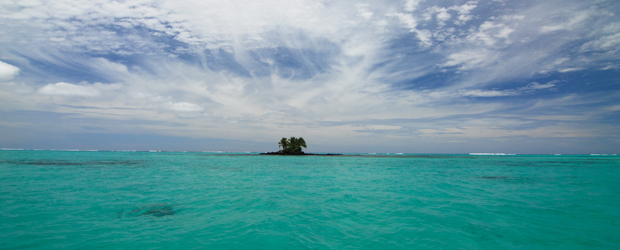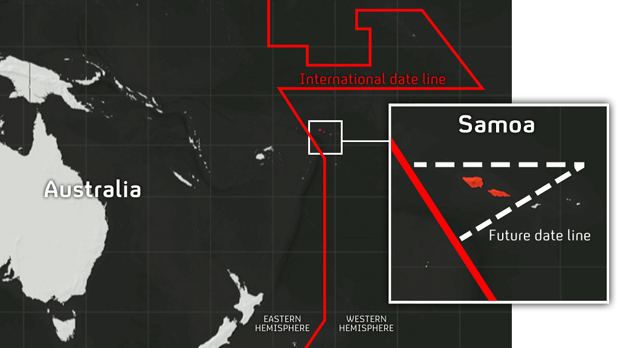Samoa to leap forward in time by one day
On Thursday night, the clocks in Samoa will go forward 24 hours – meaning the Pacific island nation will miss the whole of 30 December. Why? Malcolm Boughen takes a look.

If you worry about losing an hour’s sleep every year when we put the clocks forward to British Summer Time, spare a thought for the 180,000 residents of Samoa.
On Thursday night, their clocks go forward 24 hours, causing the Pacific Island nation to miss the entire day of Friday, 30 December.
The reason is that, after spending the last 120 years at the back of the world’s queue when it comes to the date, Samoa has decided to move to the front. The international dateline is being moved from the west of the island to the east, bringing Samoa more closely into line with its bigger neighbours, Australia and New Zealand.
Trade benefits
The Samoan Prime Minister, Tuilaepa Sailele Malielegaoi, says the change will boost his country’s trade, as Australia and New Zealand provide half of its imports and buy no less than 85 per cent of its exports.
“In doing business with New Zealand and Australia, we’re losing out on two working days a week,” he told the Samoa Observer.
The reason is that, after spending the last 120 years at the back of the world’s queue when it comes to the date, Samoa has decided to move to the front.
“While it’s Friday here, it’s Saturday in New Zealand and when we’re at church Sunday, they’re already conducting business in Sydney and Brisbane.”
The change will mean that, instead of being 21 hours behind eastern Australia and 23 behind New Zealand, Samoa will in future be just three hours ahead of eastern Australia and only one hour ahead of New Zealand.
The international dateline roughly follows the line of 180 degrees longitude, but zigzags its way down the globe to avoid splitting countries in half.
It did go to the east of Samoa until 1892, when – because of increasing trade with America and Europe, the king of Samoa decided to move it to the west. The date change on that occasion was resolved by islanders celebrating American Independence Day twice, with two consecutive Fourths of July. Now they’re having to give back that extra day.

Impact on tourism
But if the move is good for Samoa’s trade, locals are not so sure that it’ll be good for the vital tourist industry. Until now, the island has marketed itself to the more romantic among us as the last place on earth where you can watch the sun setting on the day that’s ending.
It will now have to make do with the less romantic claim of being the first place in the world to see the sun rise on the day just beginning.
But Prime Minister Tuilaepa is offering a new attraction. Because its eastern neighbour, American Samoa, will remain on the other side of the dateline, he’s suggesting that the islands are now the ideal destination for those important dates in your life.
“You can have two birthdays, two weddings and two wedding anniversaries on the same date – on separate days – in less than an hour’s flight, without leaving the Samoan chain,” he explains.